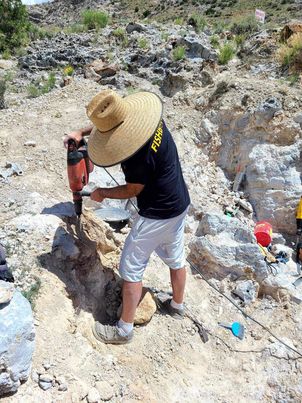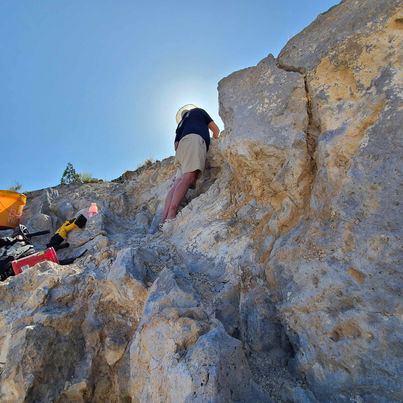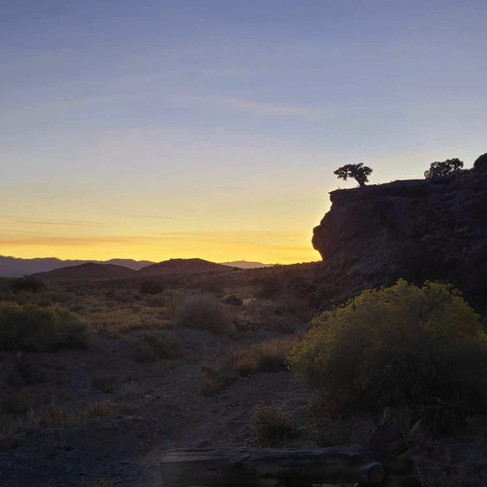This interesting and unique fluorescent specimen looks like something you'd expect to find in an underwater coral reef. Collected from the SK Star Claim #2 in Utah's Thomas Range in Juab County, this piece consists of a coralline aggregate of chalcedony and fluorite (verified by XRD analysis), coated with a brightly fluorescent layer of hyalite opal. This specimen was collected by the claim owner, Shaun Rasmussen, some time between 2015-2018. The size of this specimen is 93 x 83 x 45 mm, and it weighs 113 grams.

In the above photograph, taken under long wave UV (365 nm), the hyalite shows a bright green response, accented by small (≤ 2 mm) crystals of an unidentified mineral that fluoresces bright blue-white and shows white phosphorescence.

Under short wave UV (254 nm), the hyalite shows a brilliant, monochromatic, green fluorescent response, significantly brighter than the long wave UV response. The green fluorescence is activated by trace amounts of uranium, in the form of the uranyl ion present in the hyalite, and is evidenced by the mild radioactivity emitted by this specimen at a rate of approx. 300 cpm.

When viewed under visible light, the pale beige-colored chalcedony and pale purple fluorite can be clearly seen.
The SK Star Claim #2 was discovered by Shaun Rasmussen and Krisann Morrill in early 2015 and is featured in an article in the Nov-Dec 2020 issue of the Mineralogical Record. The claim exploits a mineralized fault in a vuggy section of the Topaz Mountain Rhyolite located in the southern area of the Thomas Range, approximately 40 miles to the northwest of the town of Delta, Utah. In addition to producing these unique fluorescent specimens, the SK Star Claim #2 is also notable for producing black topaz crystals and other minerals.









